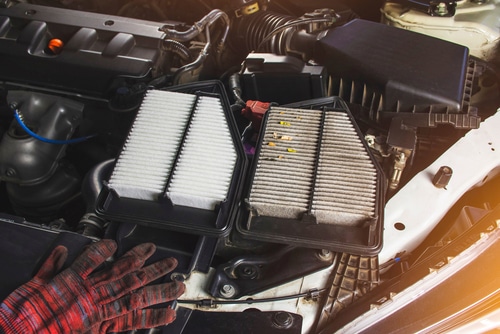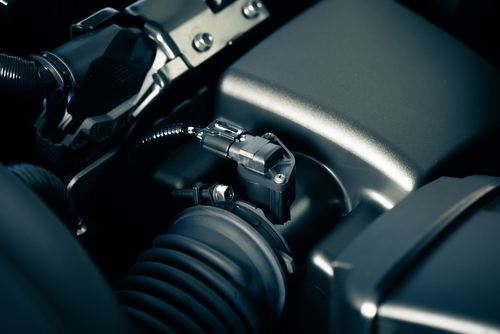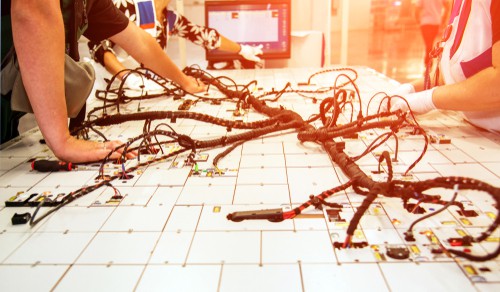
P0101 code in the Hyundai Tiburon is crucial to maintaining your truck’s performance and ensuring it runs efficiently. This code indicates that there is a problem with your car’s Mass Air Flow (MAF) sensor, specifically, a Range/Performance issue.
The most common cause of P0101 is a bad MAF sensor.
When you encounter the P0101 code, it is essential to diagnose the problem and fix it as soon as possible. It can affect the way the engine runs, and in extreme cases, can be a breakdown risk.
Here we will discuss the causes, symptoms, and possible fixes for this code in your Tiburon, offering guidance on how to approach and resolve this common issue.
P0101 Code Definition
MAF Sensor – Circuit (Range/Performance)
The P0101 code indicates to an issue with the Mass Air Flow (MAF) sensor in your Hyundai Tiburon. It’s a generic code, which means it has the same definition for your car as it would any other vehicle.
This diagnostic trouble code is triggered when the Engine Control Module (ECM) identifies an issue with the MAF sensor’s output signal, specifically when it falls outside the expected range.
The MAF sensor is essential for your vehicle’s performance, as it measures the amount of air entering the engine and adjusts the fuel mixture accordingly.
Symptoms
When your Hyundai Tiburon experiences a P0101 code, you may notice several symptoms that indicate there is an issue with the Mass Air Flow (MAF) sensor. Some of these symptoms include:

- Check engine light: This is the most common indicator that something is wrong with your vehicle. The check engine light will illuminate on your dashboard.
- Poor idle: Your Tiburon may exhibit an unstable or rough idle, causing the RPM to fluctuate.
- Stalling: The engine might stall, especially during idle or when attempting to accelerate.
- Hard starts: You may find it difficult to start your vehicle due to improper air/fuel mixture.
- Poor performance: A decrease in engine performance can result from an inadequate mass air flow reading.
- Increased fuel consumption: Your fuel consumption may increase due to improper air/fuel mixture.
P0101 Possible Causes: Hyundai Tiburon
When dealing with a P0101 code in your Hyundai Tiburon, it is essential to understand the potential causes to accurately diagnose and resolve the issue. In this section, we will discuss some of the most common causes for this code.
Dirty Air Filter

One possible cause for the P0101 code in your Hyundai Tiburon is a dirty air filter. A dirty air filter can restrict the airflow into the engine, causing the mass air flow (MAF) sensor to generate inaccurate readings.
To address this issue, you should regularly inspect and replace your air filter as necessary to ensure proper airflow and accurate sensor readings.
Dirty or Bad MAF Sensor

Another common cause of the P0101 code is a dirty or malfunctioning mass air flow (MAF) sensor. The MAF sensor measures the volume and density of air entering the engine, and if it becomes dirty or clogged, it can produce inaccurate readings.
To fix this issue, you should clean the MAF sensor with a suitable cleaner, or replace it if necessary. Only use a dedicated MAF cleaner. You can pick it up at any parts store, or even Wal-Mart. Otherwise, you can damage the MAF sensor’s delicate electronics.
Vacuum Leaks
Intake air leaks can also lead to the P0101 code in your Hyundai Tiburon. These leaks can occur in various areas, including the intake manifold, throttle body gasket, or vacuum hoses.
To identify and repair any intake air leaks, you should carefully inspect your vehicle’s intake system to locate any visible damage, and replace or repair any faulty components as needed. You can use carb cleaner to spray it
Wiring Issue

Lastly, issues with the MAF sensor’s wiring harness or electrical connections could also trigger the P0101 code. In this case, you should inspect the wiring and connections for any signs of damage, corrosion, or looseness, and address any issues found accordingly.
By understanding and addressing these possible causes, you can effectively diagnose and fix the P0101 code in your Hyundai Tiburon, ensuring a smooth and efficient running engine.
P0101 Fix

To diagnose and fix the P0101 issue in your Hyundai Tiburon, you should start by examining the MAF sensor and related components for any visible signs of malfunction.
If necessary, use an OBD scan tool to further investigate the problem. Remember to address this issue promptly, as extended driving with a P0101 code can potentially result in internal engine damage or catalytic converter failure.
The following steps can help you diagnose and potentially fix the P0101 code:
- Inspect the MAF sensor wiring: Ensure that the wiring connecting the MAF sensor to the engine is securely in place and undamaged. Look for any signs of corrosion or wear that could impede proper signal transmission.
- Clean the MAF sensor: Over time, dirt and debris can accumulate on the sensor, affecting its ability to accurately measure airflow. Carefully clean the sensor using a specialized cleaner. Avoid using regular cleaning products, as they may damage the delicate sensor components.
- Replace the air filter: A clogged air filter can significantly impact airflow and may cause a P0101 code. Replacing the air filter with a new one may resolve the issue.
- Test the MAF sensor: Use a multimeter to test the MAF sensor’s resistance and output voltage. Compare these readings with the manufacturer’s specifications. If the sensor does not meet the proper specs, consider replacing it.
By taking these steps to address the P0101 code in your Hyundai Tiburon, you can maintain your vehicle’s performance and potentially avoid more serious engine damage.
Conclusion
P0101 is a common OBDII code that indicates an issue with the Hyundai Tiburon’s MAF sensor.
There are several potential causes for a P0101 code in your Hyundai Tiburon. Some of these causes include:
- Dirty or clogged air filter: A dirty air filter can impede the proper airflow into the engine, leading to a false MAF reading.
- Dirty Mass Air Flow (MAF) Sensor: Dirt and debris can accumulate on the MAF sensor, causing incorrect readings.
- Intake air leaks: Leaks in the intake system can disrupt the airflow, leading to inaccurate MAF readings.
- Faulty Mass Air Flow (MAF) sensor: A malfunctioning MAF sensor might not correctly measure the airflow into the engine.
- Wiring harness issues: The wiring harness connected to the MAF sensor could be open, shorted, or damaged, causing incorrect sensor readings.
- Vacuum leaks: Vacuum leaks can also disrupt the airflow and lead to improper MAF readings.

